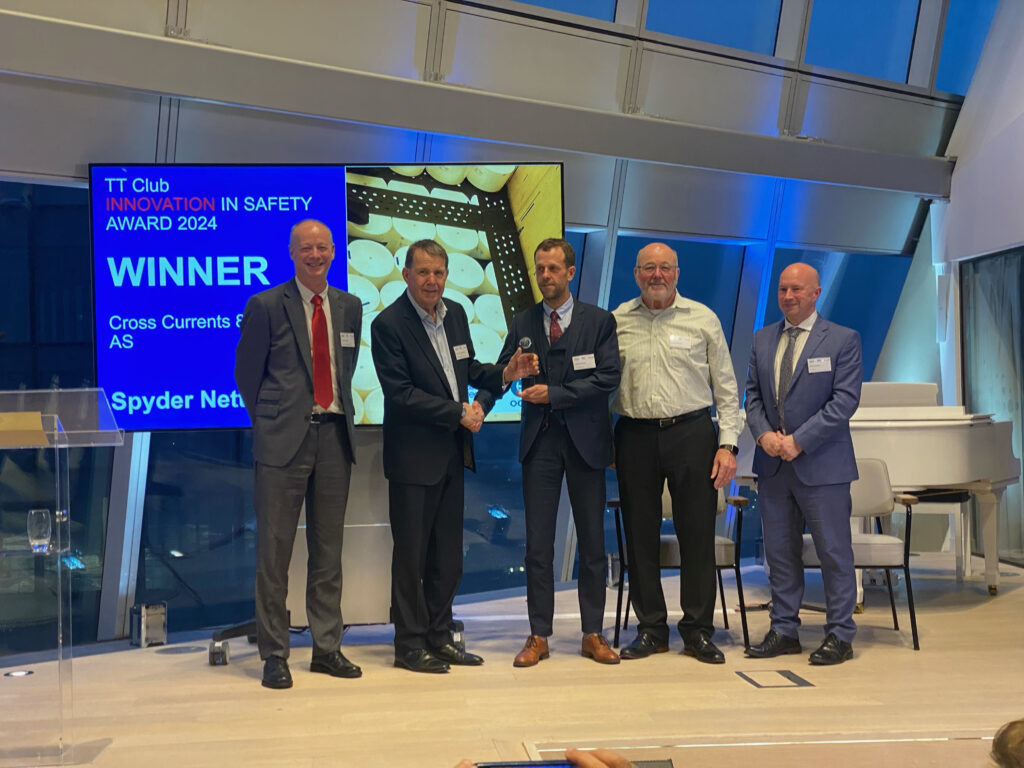In announcing its continued support of the TAPA EMEA* Award, leading provider of insurance and related risk management services to the international transport and logistics industry, TT Club proclaims its aim to encourage career development in cargo security and enhance resilience in the supply chain.
To enter, applicants must produce a 1,500-word submission on an innovative cargo security or supply chain resilience initiative they have developed or contributed to significantly. The potential areas of focus are an innovative solution to a current security concern or an experience of cargo loss that has been overcome in a practical way. Additionally, addressing an emerging new trend in security risk could be offered up.
Entries must be submitted before the closing deadline of 19 April 2024¹ and the winner will be notified by 1 May to ensure they can join TT at TAPA EMEA’s Annual Conference in Amsterdam on 12 & 13 June to receive their Award. Entries are to be judged on the originality and complexity of their solution, as well as how innovative and successful it is in improving supply chain resilience for the applicants’ companies or clients.
“We wish to identify, inspire and reward young talent in the industry, encouraging them to continue to innovate and communicate with their peers to strive for greater security throughout the supply chain sector,” said Mike Yarwood, TT’s Managing Director Loss Prevention. “We are extremely proud to continue our sponsorship of this Award; the inaugural award last year was a great success and attracted a number of bright young minds from the industry to showcase their respective security solutions.”

The 2023 Award was won by Sjef Boekestijn of Boekestijn Transport Service, for his entry on the creation of a new automated security auditing tool linked to clients’ Standard Operating Procedures. Boekestijn Transport is domiciled in the Netherlands and Sjef is based in Poznan, Poland. He was welcomed to London, as part of his award prize where he presented his solution to TT colleagues. His hosts introduced him to the UK Government’s Department for Transport to discuss standards around truck stops in the UK and he also met with NaVCIS Freight** to discuss current trends in the causes of freight crime; Sjef providing insight from his experience across Europe.
Underlining the importance of the partnership between TAPA EMEA and TT Club, Thorsten Neumann, the former’s President & CEO said, “It is important for every industry to nurture the next generation of leaders. The business focus on supply chain resilience and cargo security has never been greater with the world facing economic, geopolitical, health and environmental challenges and disruptions, in addition to the now well-established and growing threat of cargo crime. This award gives individuals in our industry an opportunity to earn an achievement they can carry forward in their careers. I ask senior managers in our membership to encourage their outstanding young professionals to participate is this year’s award.”
¹TAPA-EMEA-Young-Supply-Chain-Resilience-Professional-of-the-Year-Award-2024-Entry-Form (1).pdf
*Transported Asset Protection Association’s Europe, Middle East & Africa (EMEA) Region
**The National Vehicle Crime Intelligence Service. A UK Police Authority.
About TT Club
TT Club is the established market-leading independent provider of mutual insurance and related risk management services to the international transport and logistics industry. TT Club’s primary objective is to help make the industry safer and more secure. Founded in 1968, the Club has more than 1200 Members, spanning container owners and operators, ports and terminals, and logistics companies, working across maritime, road, rail, and air. TT Club is renowned for its high-quality service, in-depth industry knowledge and enduring Member loyalty. It retains more than 97% of its Members, with a third of its entire membership having chosen to insure with the Club for 20 years or more. www.ttclub.com










